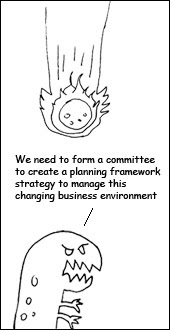 The most complex, difficult issues we face often stem from very simple questions. But these are also the most important ones to ask.
The most complex, difficult issues we face often stem from very simple questions. But these are also the most important ones to ask.A good example of this is Albert Einstein's theory of relativity.
You've probably heard of it, and you probably know very little about it, in fact you may well think it's a hugely complex and difficult subject.
And it is. But it all started with a very simple question. Einstein was a genius, and he loved to ask questions. In doing so, he often asked questions other people thought were stupid or irrelevant. One such question was this:
If the earth is travelling through space, why is the speed of light measured at the "front" of the earth as it moves not higher than the speed of light at the "back" of the earth?
It's a simple question. It makes sense: after all if we're moving "into" light falling onto the front of the earth and "away" from the light falling onto the back, the light at the front should appear to be moving faster, like two cars moving towards one another.
The answer is both incredibly simple and incredibly complex. We calculate the speed of things - their velocity - by dividing distance by time. That's easy. But in the case of light falling on the earth, there's a problem. We know that the distance the light travels in each case is different. So in order for the velocity to come out the same each time, something else must be changing too.
Einstein came to an unbelieveable but extraordinary answer. He realised that if the distance was different then to give the same velocity, time must be changing. It's bizarre, incredible and profound, but it's true and it's the entire basis for the theory of relativity, which has now been studied worldwide for over almost 100 years.
There are no stupid questions.

